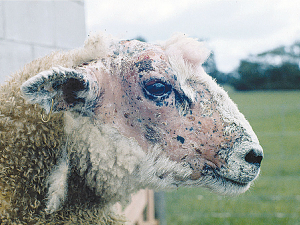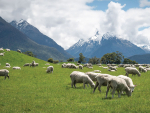Beef + Lamb New Zealand (B+LNZ) is calling on farmers from all regions to take part in the final season of the Sheep Poo Study aiming to build a clearer picture of how facial eczema (FE) affects farms across New Zealand.
B+LNZ principal scientist Dr Cara Brosnahan says farmer involvement is crucial.
"We're closer than ever to understanding where FE is occurring in New Zealand. With farmer input, we can find the tools that really work, and your farm could help complete the puzzle."
Now entering its third and final year, the Sheep Poo Study is part of the wider Eliminating Facial Eczema Impacts programme. Over the past two seasons, the study has revealed that FE spores aren’t just a North Island problem as they’ve consistently been found as far south as Otago.
“FE risk isn’t just seasonal or regional,” says Brosnahan.
“We’ve seen spore activity stretch into May and June, and it’s not confined by geography. We’ve had reports of clinical FE in every region from Northland to the West Coast of the South Island.”
The study has also revealed early signs that elevation, pasture height, and even your neighbour’s spore counts influence FE risk. Researchers are looking to confirm these relationships in the study’s final season.
Read More:
Participation is free and simple. Farmers collect sheep poo samples every two weeks from October to May, with B+LNZ providing kits and covering postage. Farmers will receive results to better understand their FE risk, a $40 subsidy on faecal egg counts tested by Awanui Veterinary and the chance to be one of 25 farms selected for monthly FEC and larval culture testing from October to May.
Brosnahan says the final season is critical.
“We need more farmers to take part, especially if they’ve never had FE detected on their farm before; those results help build our understanding of this devastating disease.”
By joining, farmers will not only protect their own flocks but also contribute to a national solution for a disease that costs the sector over $330 million each year.
Registration is available at www.beeflambnz.com/sheeppoostudy



















